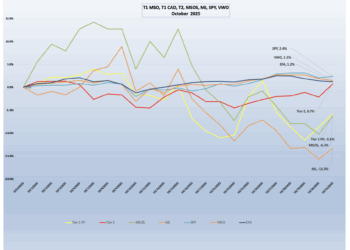U.S. District Court Judge Mark Mastroianni appeared unconvinced that the plaintiffs in Canna Provisions Inc., et. al. v. Garland lacked standing to challenge the constitutionality of the Controlled Substances Act, but the judge questioned whether the CSA had caused the plaintiffs measurable harm.
The plaintiffs, which include Verano Holdings (VRNOF), a multi-state operator and a smaller Massachusetts-based business, Canna Provisions, argue that the Controlled Substances Act, which classifies cannabis as an illegal narcotic, unfairly undermines businesses in legal states from taking part in interstate commerce. Massachusetts-based courier Wisacre Farms and the CEO of Treevit, a Massachusetts-based delivery service, are also plaintiffs.
The cannabis companies and the Department of Justice presented their arguments Wednesday morning before Mastroianni in the Western U.S. District Court of Massachusetts in Springfield, Mass., during a hearing for the federal government’s motion to dismiss. Both sides stood firm as the judge asked how the possible impending rescheduling of cannabis could change their claims.
The plaintiffs also argue that the CSA unfairly limits access to federal grants, banking services, payroll services and investments, as well as from processing credit cards for purchases. Most operators are required to deal in large sums of cash, which they argue makes them ripe for robbery, potentially creating a public safety risk.
The plaintiffs’ challenge hinged on their ability to straddle the argument that the federal government has displayed an unwillingness to enforce the CSA in terms of cannabis while also maintaining a federal regulatory scheme that leaves state-legal cannabis operators in jeopardy of legal oversight.
“They fail to establish a credible threat of enforcement,” said DOJ attorney Jeremy Newman. “They affirmatively allege that the DOJ has a policy not to prosecute the conduct they are engaged in.”
Newman also argued that the plaintiffs were improperly citing impositions from other laws, such as the federal tax code, while only seeking to challenge the CSA. Mastroianni seemed unconvinced of this point.
“All the laws and regulations, etc. that the plaintiffs are subjected to are all traceable back to the CSA,” the judge said.
Finally, Newman disputed the plaintiffs’ claims that federal law forced third parties, such as banks, to deny service due to federal prohibition. He argued that while many banks refused to do business with cannabis operators, the fact that there are banks implies there is a lack of government coercion.
“It’s pretty clear that third parties are making independent decisions about whether or not to transact with businesses, and that’s not a basis for standing to sue the government,” he said.
In terms of credit card companies doing business with cannabis companies, plaintiffs’ attorney David Boies, founding partner at Boies, Schiller & Flexner, argued that a credit card company’s decision to deny service to U.S.-based cannabis businesses was compelled by federal law and not by moralistic choice.
“Credit card companies don’t have any problem doing business with marijuana businesses in Canada, where it’s legal,” he said. “They stopped doing business with us, as a coercive effect.”
Boies argued that despite the possibility of rescheduling, as long as cannabis remains illegal there’s also a threat of law enforcement. He cited recent examples in New Mexico, where U.S. Customs and Border Protection has been seizing state-legal cannabis as far as 100 miles away from the border and pharmacists in Georgia being warned by the DEA not to take part in the state’s legal medical market.
Boies noted that even if cannabis is moved to Schedule III, adult use would still be federally illegal.
“The government is still asserting that it is illegal. And as long as that is the case, there’s a credible threat of prosecution,” said Boies, further arguing that only equitable solution would be consistency in federal oversight.
“They’d have to be taking a uniform position that would allow banks, credit card companies and other people to understand what the law is,” he added. “They haven’t done that.”
Many of the plaintiffs’ arguments were first raised in 2005 before the Supreme Court in Gonzalez v. Raich. At the time, the Supreme Court upheld the CSA, arguing that the law was intended to halt the spread of illicit cannabis across state lines. The plaintiffs are arguing that since 38 states have now legalized medical cannabis, that spread has already happened.
If the judge denies the motion to dismiss, the pre-trial phase of the case will continue.












